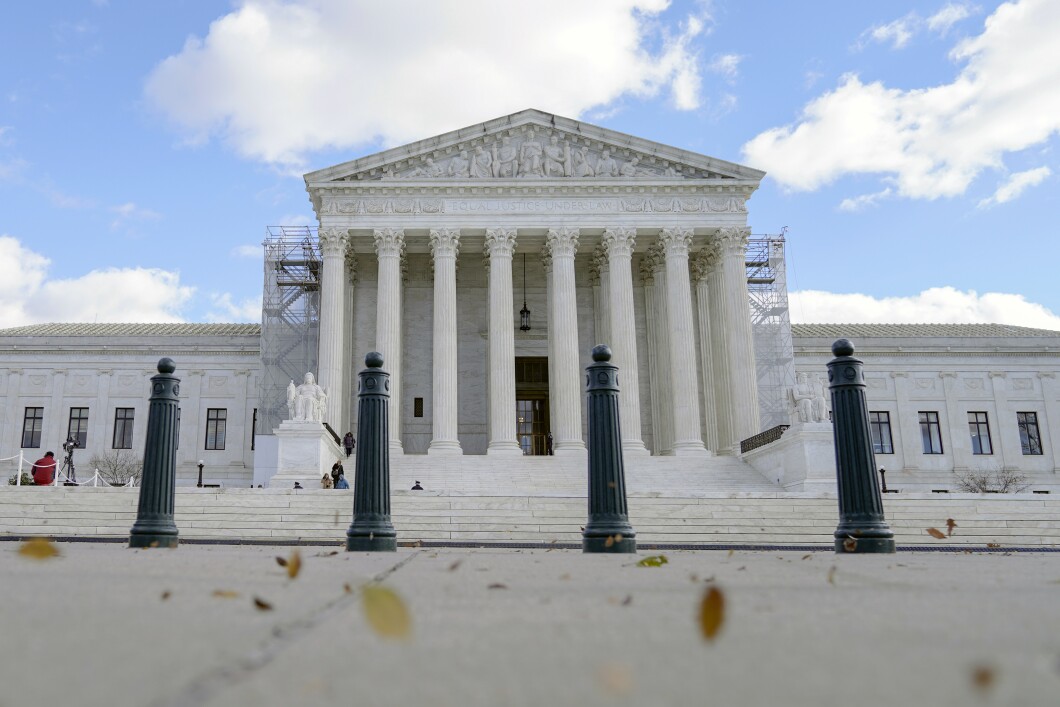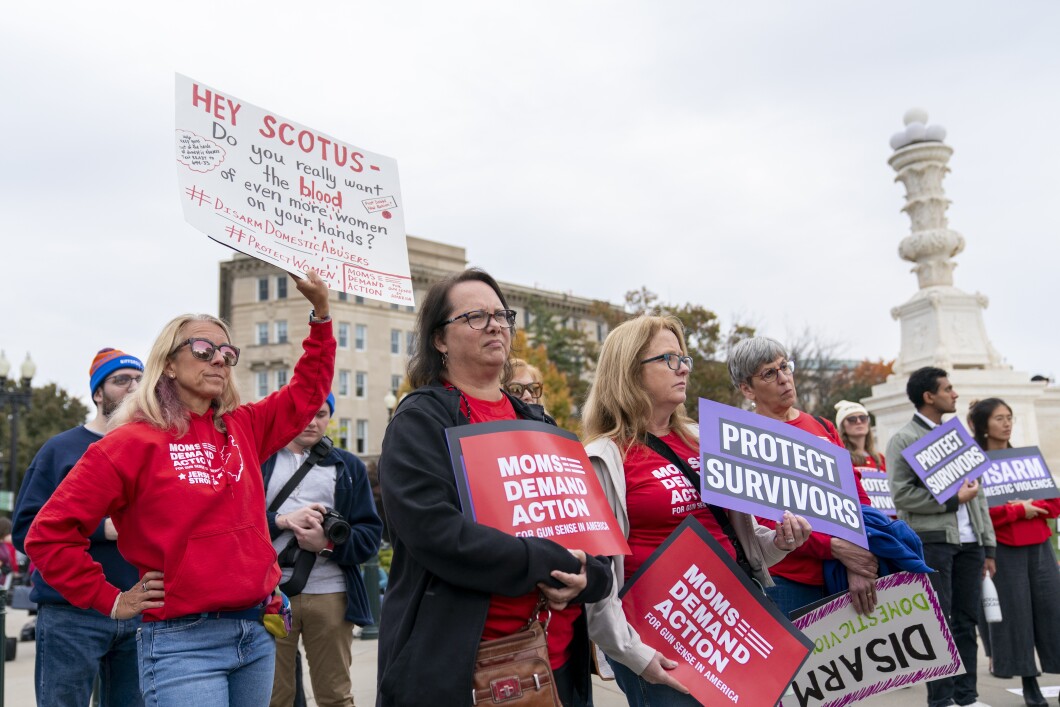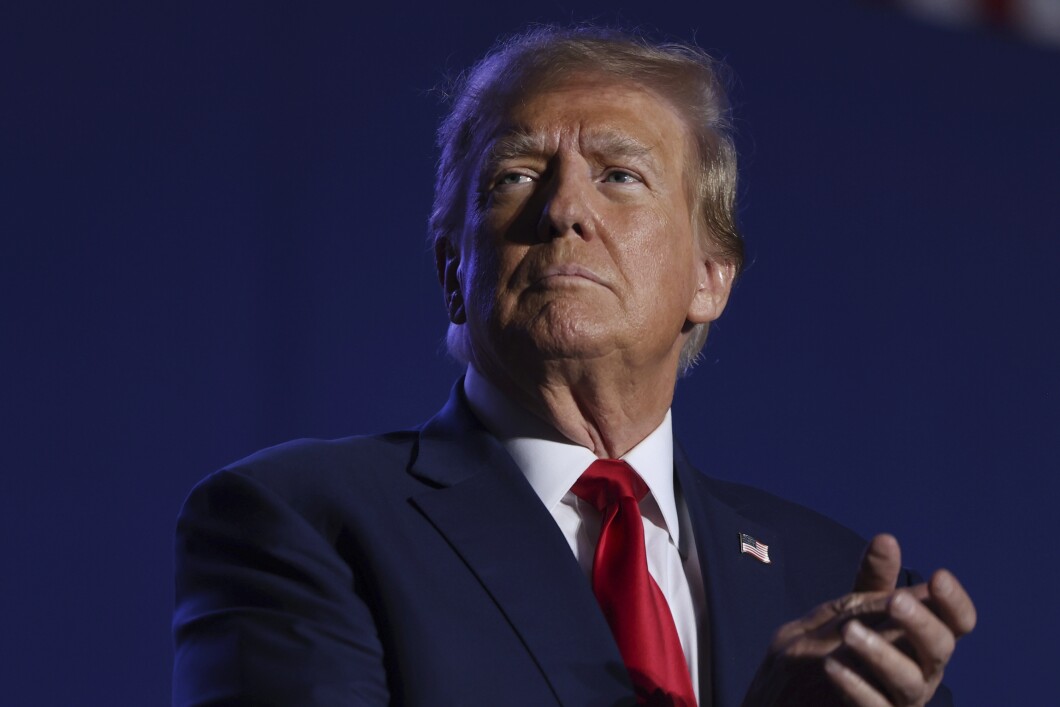
In the spirit of the season, the Washington Examiner has identified 12 issues we believe will shape 2024 — and beyond. These close-up examinations of agenda-setting issues cover everything from the battle between the Biden family’s business deals and Republican oversight to the emergence of a “new world order” and fights over redistricting and new election maps. Part Five is about the Supreme Court.
The Supreme Court will begin the second part of its nine-month term in January with some of the most high-stakes cases of the term so far, including disputes that could undermine agency authority significantly and redefine the powers of the Biden administration.
Jan. 8 will mark the justices’ return to the bench and the resumption of a term that has widely been described as the Supreme Court’s examination of administrative state powers, as a handful of major cases this term have questioned whether Congress truly intended these executive agencies to assume such broad authority.
TRUMP LEGAL WOES COME BARRELING TOWARD SUPREME COURT ON THREE KEY FRONTS AHEAD OF 2024
As of Dec. 21, the Supreme Court has agreed to consider at least 52 cases, 29 of which have already been heard or are currently scheduled for argument. This term, the high court has already delved into voting and redistricting, novel social media law questions, the legality of firearms restrictions for domestic violence offenders, and a major opioid bankruptcy suit.
Here are the top Supreme Court cases to watch in 2024:

Three cases that could dismantle the administrative state
Judicial conservatives have long criticized the 1984 precedent known as the Chevron doctrine by arguing that it unconstitutionally transfers judicial powers and legislative powers to the executive branch and limits the judicial branch’s role in determining what the law is. The doctrine tells federal courts to accept an agency’s reasonable interpretation of an ambiguous statute that the agency administers, even if that court would disagree or choose an alternate interpretation.
The cases that foes of the Chevron doctrine have long awaited are Relentless v. Dept. of Commerce and Loper Bright Enterprises v. Raimondo, which will be consolidated for Jan. 17 oral arguments. The cases carry enormous implications depending on how broad or narrowly the justices rule for or against the government.
The Loper Bright case involves New Jersey-based herring fishermen challenging a federal regulation that they claim limits their catch. The fishermen argue that a 1976 federal law, the Magnuson-Stevens Act, could force them to forfeit a portion of their earnings to pay for at-sea monitors on their boats, a provision they believe is outside the National Marine Fisheries Service’s enforcement purview.
It is not entirely clear whether the Supreme Court will completely upend the doctrine, as doing so could roll back the leeway that agencies have to interpret vague statutes. Gutting Chevron would have sweeping implications for citizens and businesses challenging administrative agencies in courts.
Additionally, two other cases that have already been heard also threaten to dent the administrative state.
One is Securities and Exchange Commission v. Jarkesy, where the justices will decide if the SEC’s power to adjudicate securities fraud claims with in-house judges violates the Seventh Amendment, or the nondelegation doctrine. Arguments were heard on Nov. 29, and the case could limit the use of in-house tribunals and force more disputes to be weighed in federal courts before a jury rather than allowing government-appointed administrative law judges to adjudicate cases.
The other is the Consumer Financial Protection Bureau v. Community Financial Services Association of America case that was heard on Oct. 3. That case asks whether the funding scheme for the CFPB, which receives funding directly from the Federal Reserve instead of being funded through annual appropriations by Congress, violates the appropriations clause of the Constitution.
Abortion back at the Supreme Court

The Supreme Court will also reexamine the Food and Drug Administration’s approval of mifepristone access by mail, examining access to a commonly used medication abortion drug after the justices repealed surgical abortion access precedent last summer through Dobbs v. Jackson Women’s Health Organization.
That decision has been credited with helping Democrats outperform expectations in last year’s midterm elections and last month’s off-year contests in Kentucky, Ohio, Pennsylvania, and Virginia despite a weak economy. An argument date has not been set in this case.
Firearms restrictions

In United States v. Rahimi, justices are weighing the constitutionality of a federal law that bars anyone subject to a domestic violence restraining order from possessing a firearm.
When justices heard arguments in this case on Nov. 7, it marked the first Second Amendment-related case since the 6-3 decision last year in New York State Rifle & Pistol Association v. Bruen, a landmark ruling that struck the Empire State’s handgun licensing regime and established a new legal framework for evaluating gun laws.
Social media disputes have another big year
The justices have already heard two perplexing cases on Halloween known as O’Connor-Ratcliff v. Garnier and Lindke v. Freed, where the justices were asked whether a public official blocking an individual on the official’s personal social media account constitutes a state action.
Also slated for arguments sometime next year is Murthy v. Missouri, in which the Biden administration will argue it did not violate the First Amendment when it pressured social media companies to remove information it said was false regarding the COVID-19 virus and the 2020 election.
Jan. 6 and Donald Trump

It’s no secret that former President Donald Trump‘s 91 criminal charges spread across four indictments would one day result in a flood of appeals to the high court, an inevitability that hit a fever pitch right before Christmas.
The justices agreed to review the scope of an obstruction statute, Section 1512 (c)(2), at the core of an indictment accusing Trump of allegedly conspiring to overturn President Joe Biden‘s 2020 election victory. The case features a Jan. 6 rioter who is challenging one of the same statutes that Trump is accused of violating in his four-count indictment, and justices will hear oral arguments in that case and decide it sometime before the end of June.
Special counsel Jack Smith, who was appointed to prosecute Trump in two separate federal cases, asked the high court on Dec. 11 to weigh Trump’s claims of presidential immunity against prosecution on an expedited schedule. The Supreme Court on Dec. 22 declined to take up his petition, leaving the matter to be decided by the U.S. Court of Appeals for the D.C. Circuit on Jan. 9.
Separately, Trump suffered a major loss in Colorado when the state Supreme Court ruled that he was ineligible to appear on the primary ballot under Section 3 of the 14th Amendment.
Trump also signaled on Dec. 21 that he may go to the Supreme Court over a separate immunity question in a civil defamation lawsuit brought by E. Jean Carroll.
CLICK HERE TO READ MORE FROM THE WASHINGTON EXAMINER
The justices are likely poised to consider further matters surrounding Trump before the 2024 election, as any possible conviction by a jury would be challenged to the justices as the former president maintains his innocence.
The Supreme Court will likely have more opinions to release in January in cases already argued in 2023. The high court will decide every case by the end of June next year.






